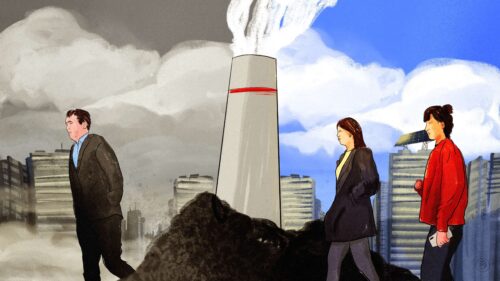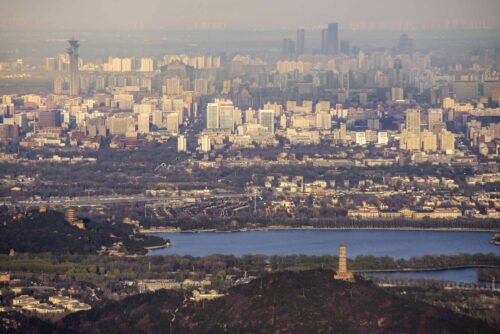Two Sessions: Beijing sets goals for 6% GDP growth, environmental protection, and crushing dissent in Hong Kong
The annual gathering of the National People’s Congress in Beijing kicked off with modest goals for the economy and environment, and plans for the more complete subjugation of opposition forces in Hong Kong.

China’s annual Two Sessions legislative gathering got going in earnest today, with the opening of the National People’s Congress, and the recitation of a “government work report” by Premier Lǐ Kèqiáng 李克强. The work report revealed several important goals, including:
- A GDP growth rate of “over 6%” for 2021. Caixin notes that this goal is modest, and “below market estimates for full-year GDP growth ranging from 8% to 10%.”
- Environmental targets, such as a drop of “around 3% in energy consumption per unit of GDP.” However, Li appeared to kick the can down the road on the details of China’s path to decarbonization, merely saying that Beijing would “draw up an action plan for carbon emissions to peak by 2030.”
A draft of the 2021–2025 Five-Year Plan, viewable in Chinese here, will be formally approved later during the Two Sessions. The analyst Damien Ma noted two important features of the draft plan:
- That the “only binding targets” in the plan are related to energy, environment, and agriculture. Food security has long been a high priority for Beijing, and there have been hints in recent months that China is preparing to legalize GMO seeds, which are currently banned in most circumstances.
- That unlike previous five-year plans, there was no economic growth target set beyond the current year. The economic consultancy Trivium also noted this as a signal that “policymakers are no longer predominantly focused on headline growth.”
The end of Hong Kong’s partial democracy?
Hong Kong never enjoyed a full democracy, or direct and universal elections for its Chief Executive, and Beijing appears to be following through on reported plans to ensure that only “patriots” loyal to the Communist Party rule the territory.
- Opposition politicians in Hong Kong had become a “severe threat to national sovereignty, security and development interests,” a Politburo official, Wáng Chén 王晨, told the NPC delegates, the New York Times reports.
- Wang “said that Beijing would overhaul the membership of the territory’s Election Committee, a body that chooses the chief executive,” per the NYT.
- Additionally, “structural changes will include increasing the city’s legislative seats from 70 to 90, with some of these to now be decided by a committee stacked with Beijing loyalists,” Reuters reports.
- “Improving” the electoral system in Hong Kong is “legitimate, necessary and imperative,” state news agency Xinhua said in a commentary today. A Chinese-language report on Xinhua relayed praise for the electoral changes from China’s Liaison Office spokesperson in Hong Kong.
Other news from the Two Sessions
A quick summary of other legislative meetings and announcements of note:
- China’s defense budget will increase by 6.8% this year, per the AP.
- China wants more babies to ward off a demographic crisis, and is planning to implement more measures to ease financial burdens on parents. Experts are still skeptical it will be enough, the Wall Street Journal reports.
- China is pledging to build a “Polar Silk Road” and expand transport and economic utilization of both Arctic and Antarctic regions, Reuters says.
- Tech self-sufficiency is a big theme, and Beijing is boosting budgets for research in areas such as artificial intelligence, quantum information, integrated circuits, biotechnology, and more, the SCMP reports.
- Advanced manufacturing in sectors such as “robotics, aircraft engines, new energy vehicles and smart cars, [and] high-end medical equipment” is another priority, per the SCMP.
- Ethnic unity propaganda: Xí Jìnpíng 习近平 met with a delegation from Inner Mongolia and urged it to “cherish and uphold its fine tradition of ethnic unity,” while not forgetting to cement a “sense of community for the Chinese nation.”






